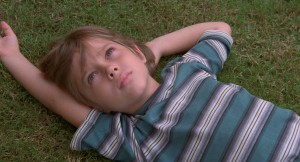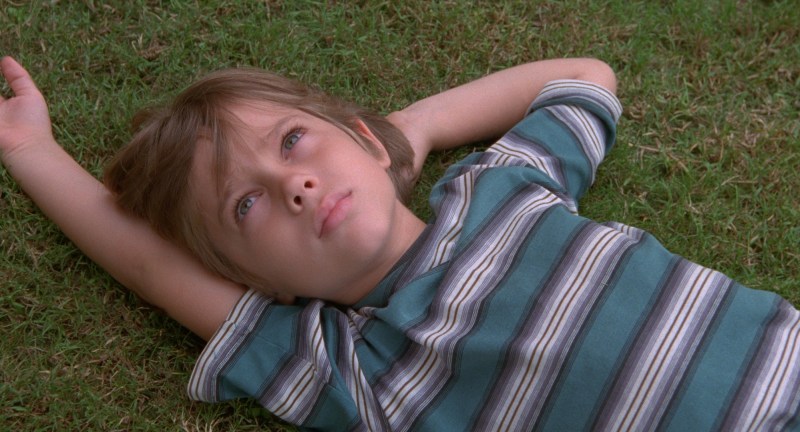
Director Richard Linklater’s latest project, “Boyhood” — in which Linklater follows the same cast of actors over 12 years — is perhaps the contemporary film that most lives up to the name of its coming-of-age genre. From the director of the “Before Sunrise” trilogy comes a tale with the poignancy of growing up in real time handled with the understated sincerity of its title.
“Boyhood” follows Mason (Ellar Coltrane) through his journey into young adulthood. Growing up alongside Mason are his single mother, Olivia (Patricia Arquette), his reformed father, Mason Sr. (Ethan Hawke) and his older sister, Samantha (Lorelei Linklater).
Although Linklater has explored the passage of time in previous films, like the “Before Sunrise” trilogy, “Boyhood” is unique in that its filmic time is nearly, if not totally, inseparable from real time. In turn, audiences are led to regard Mason as a channel to have vis-à-vis encounters with themselves.
The film’s most potent quality is its show-not-tell formula. Scenes from Mason’s life play out in sequence, creating a visual experience that is both compelling and immersive. Linklater invites his audience to grow up with Mason: to relive their equivalents to the excitement of attending the midnight release of “Harry Potter and the Half-Blood Prince,” the pain of coping with parental divorce and the remarkable joy of discovering a latent calling. The film delights in the ordinary, awakening audiences to do the same.
At times, the film suffers from its understated approach. There are neither moments of high emotional tension nor tragedian drama, neither plot gimmicks nor firecracker dialogue. Yet it remains difficult to determine whether to attribute the film’s most stilted moments to lackluster acting or the fact that Coltrane, too, is growing up on the screen — both Mason and Coltrane are only 19 years old by the film’s end.
But “Boyhood” is not an experience that consummates when the credits begin to roll. After watching 12 years of “boyhood” unfold over a running time of 164 minutes, I left the theater expecting a heavy dose of post-film disorientation. But as my sneakers hit the cool concrete of San Francisco by dark, I felt newly attuned to the surrounding energy of passers-by, more awed than I had been before by the expanse of city lights that twinkled ahead, heightened to a sense of having stepped deeper into life. I began to make my way home, my sense of wonder roused once more by a film that reminds us we never truly cease to grow up.
“Boyhood” hits theaters on July 18. Tickets for Q&A sessions with Linklater on opening night in San Francisco can be purchased here for the Sundance Kabuki Theater and here for the Embarcadero Center Cinema.
